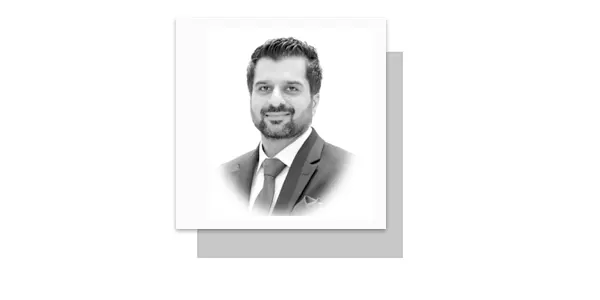JUST imagine the potential for blowback when you sit next to someone intolerant and dare to disagree.
The scenario is truly horrifying.
People are teachable and easily influenced.
Their values, shaped by their education and environment, determine their behaviour.
The peaceful survival of humanity hinges, above all, on the cultivation of tolerance.
Calm minds—an essential trait of tolerant individuals—are better equipped to navigate toxicity and discord.
In contrast, intolerance only serves to intensify such situations, escalating conflict rather than resolving it.
Societies that lack tolerance descend into chaos, losing both their peace and unity.
A peaceful society is fundamentally built on its people’s ability to thrive amidst diversity.
This demands a collective commitment to valuing tolerance at all levels.
Intolerance gives rise to social discord.
Intolerance is a destructive force that obstructs humane behaviour and compels individuals to resort to extreme measures—coercing others to adopt their viewpoints, fulfil their demands and conform to their expectations.
Intolerance fosters societal hatred, leading to violent struggles for power among different ethnic and social groups.
It widens the gap between citizens and the government, breeding sociopolitical unrest.
Tolerance, on the other hand, is often the product of sound government policies.
Effective governance can foster unity among ethnic, religious and political groups through inclusive policy frameworks.
Without such policies, rival factions inevitably clash for influence, silencing others and suppressing diversity.
Moreover, when the state fails to address the legitimate demands of its people, intolerance festers.
Efficient public service delivery is vital for cultivating harmony.
Strengthening the capacity of governance enables it to better meet citizens’ expectations.
When this fails, however, frustration arises from unmet needs, resulting in a surge of intolerance.
High illiteracy rates hinder the public’s ability to understand the significance of tolerance.
Without this understanding, people are more likely to embrace intolerance as a means of survival.
Education plays a critical role in fostering tolerance and reinforcing social cohesion.
Yet illiteracy deprives individuals of this capacity.
In such circumstances, self-interest prevails, often at the cost of others’ rights.
Intolerant individuals rigidly defend their positions, even when they are demonstrably wrong.
The rise in intolerance is also exacerbated by political infighting.
When a single political ideology fails to deliver, alternative viewpoints emerge, providing citizens with options aligned with their values.
However, this political diversity often becomes a source of conflict, especially when leaders lack the basic decency to respect opposing parties.
In many cases, politicians exploit political diversity for personal gain, deliberately fueling societal intolerance to mobilize support.
Another major driver of societal intolerance is the unequal distribution of income.
Rising income inequality is making the world increasingly intolerant.
Even in developed countries like the United States, wealth remains concentrated in the hands of a few, highlighting stark economic disparities.
The same is true for developing nations.
Where economic equality is absent, intolerance tends to flourish.
In the absence of dialogue, intolerance becomes dominant.
Dialogue is essential for societal growth because it encourages the understanding of diverse perspectives.
It builds leadership and contributes to the creation of unified, resilient communities.
When dialogue fails, social groups often resort to coercion and intolerance, paving the way for societal collapse.
Policies that ensure the safe and equal existence of all citizens can significantly reduce intolerance.
At the heart of this effort is education.
Educating the general public fosters optimism, empathy and open-mindedness.
Educated individuals are more likely to resist intolerance, offering space for dissenting voices and allowing grievances to be aired peacefully.
Promoting social justice is equally vital in nurturing a tolerant society.
Social cohesion relies heavily on the equitable treatment of all individuals.
Just societies are inherently more tolerant, whereas injustice breeds resentment and hostility.
Injustice and intolerance are mutually reinforcing.
Where justice thrives, so does tolerance.
Promoting tolerance also requires implementing inclusive policies that integrate diverse cultures, religions and ethnicities.
When diverse groups feel seen and valued, they contribute more meaningfully to national progress.
This inclusive environment nurtures mutual reliance, strengthens national unity and promotes societal transformation.
Tolerance takes firm root in societies that ensure jobs, economic opportunities and robust social safety nets.
Productive and employed youth are far more likely to contribute to peaceful, cooperative communities.
Economic stability fosters a sense of security, allowing individuals to support their families and meet their needs.
Social safety nets act as buffers during crises, helping people endure adversity with dignity.
In return, citizens become more tolerant and resilient.
Improved public service delivery and effective resolution of public issues further strengthen societal tolerance.
This enhances public trust in government, reinforcing the belief that all voices are heard and respected.
Regrettably, intolerance has been steadily rising in Pakistani society over recent years.
It is deeply rooted in social, political and economic issues.
The future prosperity of Pakistan depends on the deliberate and urgent eradication of this menace.
Intolerance poses a grave threat to national unity and must be addressed decisively.
The severity of this issue is escalating rapidly and failure to act may lead to irreversible societal fragmentation.
The flames of intolerance, if left unchecked, could destroy the possibility of peaceful coexistence among Pakistan’s diverse communities.
Pakistan’s peaceful survival depends on confronting intolerance head-on.
Intolerance undermines the forces that drive national progress and places peace and prosperity in jeopardy.
As a nation with a huge potential to thrive, we cannot afford to falter.
Our collective social, political and economic advancement relies on cultivating a society grounded in tolerance.
—The writer is Commoner from 44th Common Educationist — Founder of WHI Institute. based in Sargodha. (waqarhassancsp@gmail.com)


















